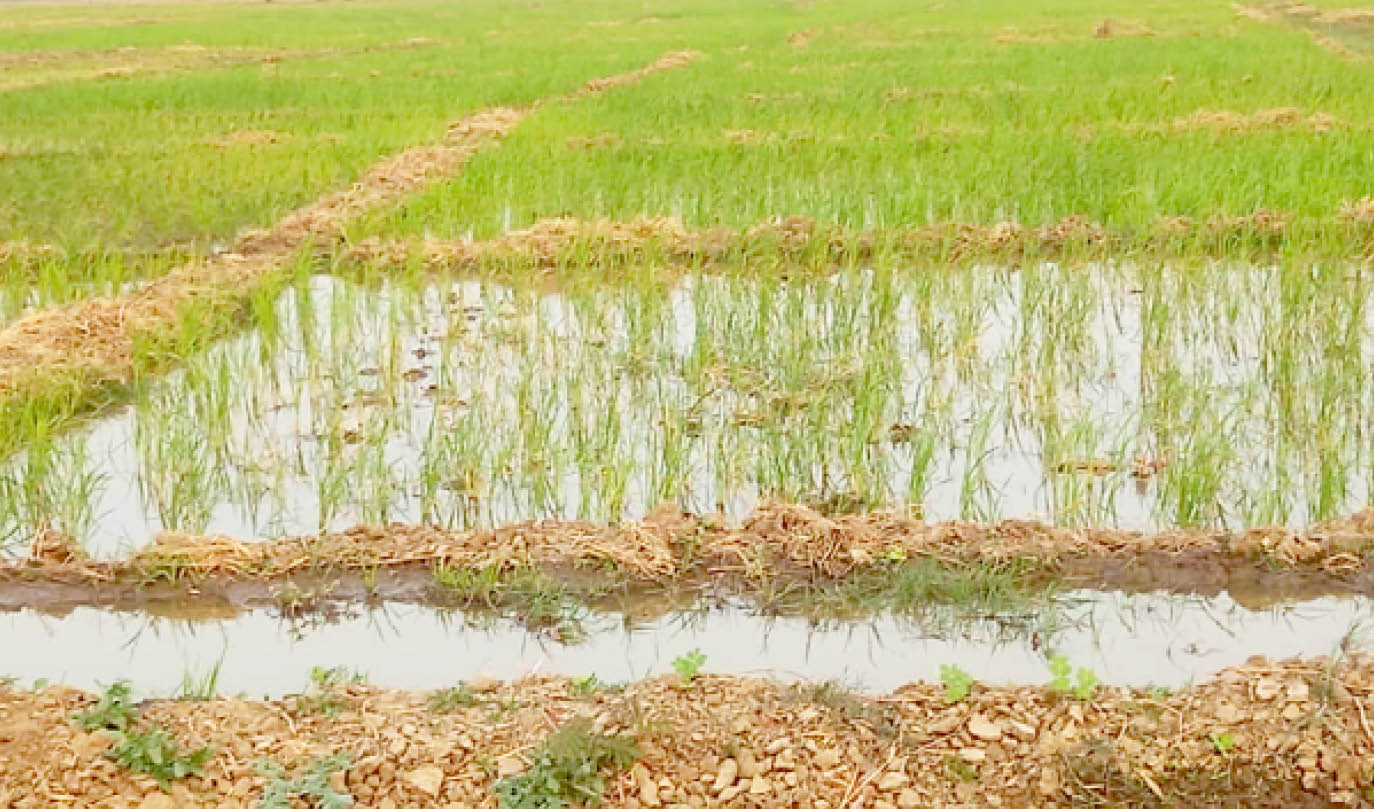Gombe wheat farmers decry high cost of inputs
The removal of subsidy which resulted in a hike in fuel prices is threatening wheat farming as it shoots up the cost of inputs, wheat farmers in Gombe State have said. A wheat farmer in Nafada LGA of the state, Malam Kawu Sa’idu, said fuel is essential for operating machinery, irrigating fields and transportation. According […]

an irrigated farm in gombe
The removal of subsidy which resulted in a hike in fuel prices is threatening wheat farming as it shoots up the cost of inputs, wheat farmers in Gombe State have said.
A wheat farmer in Nafada LGA of the state, Malam Kawu Sa’idu, said fuel is essential for operating machinery, irrigating fields and transportation.
According to him, any increase in fuel prices directly impacts the overall cost of production for wheat farmers.
“The major problem of wheat farming this year is the high cost of fuel, which also increases the difficulties in cultivating our farms. The removal of subsidy has made fuel to be costly and that will affect the high turnover of the produce after harvest, because a lot of people have reduced the quantity of the wheat they cultivate on their farms.
“This can lead to decreased profitability for farmers, as they have to spend more money on fuel, leaving less for other important inputs like fertilisers, pesticides, and labour.
Senate rejects move to include Anambra in NDDC
Reps dismiss petition against NPA MD over alleged N178bn bad debt
“Ultimately, the higher fuel costs could make wheat farming less viable and potentially lead to decrease in production and supply of wheat in the market,” Sa’idu said.
He added that in the past years, he planted over three hectares of wheat, but that he is now forced to reduce to just one hectare due to the challenges of daily escalating costs.
The small-scale farmer also said in the past, farmers used a hybrid seedling of wheat, but have now resorted to the local variety because of the difficulties in getting the modern seedlings.
He also lamented that the intervention by the state government came to them very late, adding that at the time it was distributed most farmers had already planted their farms.
Sa’idu added that apart from high cost of production, another challenge bedevilling the farmers is lack of market to sell the wheat at appreciated price after harvesting the crop.
“Our major problem is lack of market for our wheat as government and other companies prefer to purchase it from abroad, though we have enough to meet their demands in the country.
“Last year we had a big problem, because after harvesting the wheat we had to take it to Kano before we could sell it, as there is no market in Gombe. And transporting it to far places causes us other expenses.
“But we have no option than to take the wheat to Kano or other distant places where there are flour mills, because the companies do not come themselves to purchase the wheat from us here in Gombe,” Sa’idu lamented.
He added that, “In most cases the farmers are left with the wheat in their farms or to sell it at very meagre price, which hardly covers the investment on the farms while cultivating the wheat.”
However, said despite the challenges, the farmers are still expecting good yield during harvest, “because the AFAN has really tried and provided us with inputs at the onset of the irrigation farming season.
“We were given 10 bags of fertilizer, two bags of improved seedlings and a bag of liquid fertilizer among others. These inputs have greatly helped and we are hoping for good yields during harvest.”
Responding, the National Publicity Secretary of the All-Farmers’ Association of Nigeria (AFAN), Alhaji Muhammad Magaji Gettado, said the association, in collaboration with the Federal Ministry of Agriculture and Food Security, is providing all the necessary support to farmers, in addition to farm inputs at a very affordable rate.
“And we are also linking them with big flour mills, which are now monitoring the farms. In fact they are even waiting for the harvest of the wheat, and they will buy at a very good price after the harvest.
“The federal government will also provide solar water pumps to be distributed to the farmers which will solve the problem of high cost of fuel and diesel, which created a huge problem for dry season farmers,” he said.
